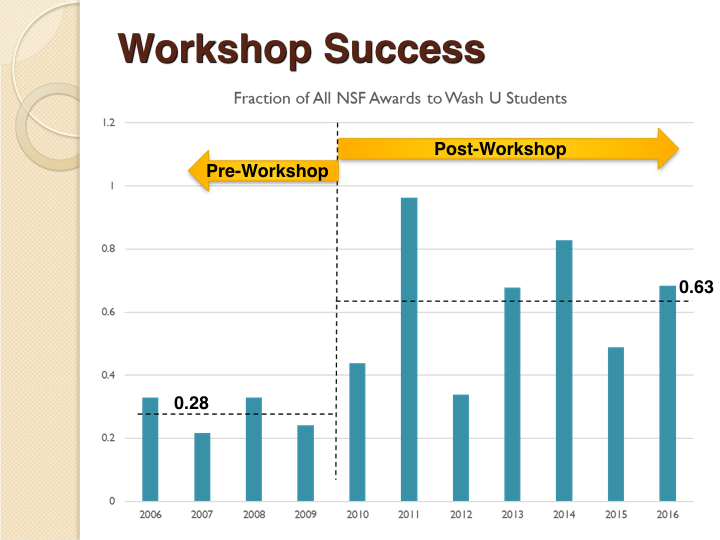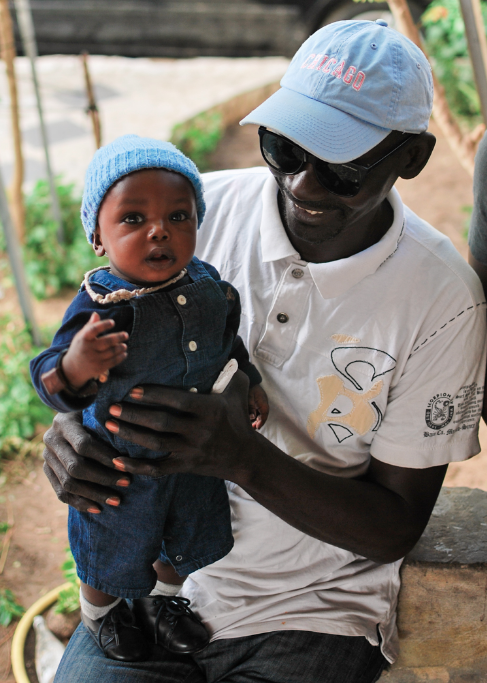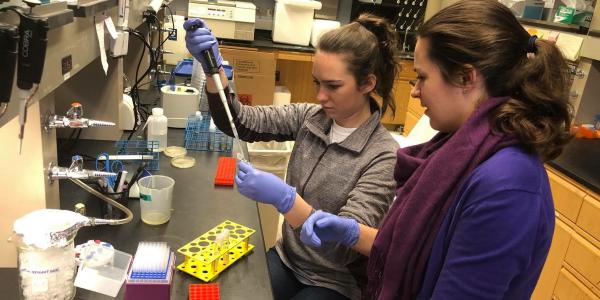The Graduate School teams up with university groups to help students in science, technology, engineering, and math land prestigious fellowships.
For many graduate students, an important deadline looms large: Next spring the National Science Foundation will award some 2,000 fellowships in science, technology, engineering, and math disciplines – but only to those students who can polish their applications and outshine the competition by the late-October deadline.
And that competition is fierce. Last year, NSF, through its Graduate Research Fellowship Program (GRFP), awarded 2,000 fellowships out of more than 12,000 applications. But at Washington University, graduate students get equally fierce support in the form of fellowship-writing workshops presented by the Graduate School, the Division of Biological and Biomedical Sciences, the School of Engineering and Applied Sciences, the Writing Center, and the Office of Postdoctoral Affairs.
“The logic behind this was simple: We have great students; they should be getting help to land these prestigious fellowships,” said Joseph Jez, professor and chair of the Department of Biology, who helped launch the workshop series eight years ago with Martha Bhattacharya, now a professor at the University of Arizona.

Since the workshop’s inception, WashU students have more than doubled the annual share of NSF fellowships they receive – a boon for both students and their advisors, since the awards provide funding for tuition and stipends during three years of a student’s graduate education.
“It's not just about more students applying – total applications to the GRFP have more than doubled overall – it's nudging good proposals to become better,” explained Jez.
A successful application consists of a research proposal, personal statement, and letters of recommendation. In all parts, NSF judges both the applicant’s potential to advance knowledge (Intellectual Merit) and to benefit society and contribute to the achievement of specific, desired societal outcomes (Broader Impacts). First- and second-year graduate students and senior undergraduates in STEM fields are eligible to apply.

Dick Powis, a fifth-year graduate student in anthropology who received the fellowship in 2014, credits his undergraduate advisor’s strong mentorship for his application’s success. “It helped me tighten, fine-tune, and really hone” the application, Powis said, which focused on men’s views on virginity and promiscuity in Dakar, Senegal.
“Go. To. The. Workshops,” Brittany Brumback, a third-year graduate student in biomedical engineering, emphatically urges junior students. She participated in the 2017 fellowship workshops before learning in early April that she had been chosen as a fellow. Brumback, whose graduate work in the Rentchler lab blends physiology, molecular biology, and engineering to study genetic controls on heart arrhythmias, ponders whether she would have even submitted the application without the workshops.
After nearly a decade of helping students apply for the fellowship, organizers have a good sense of the benefits students gain from the workshops. They include clearly and concisely explaining a research project while making it exciting; understanding that good writing takes time and revision; and learning to frame their experiences, backgrounds, and interests as Broader Impacts. “Many students don’t realize that they already have experiences that fit Broader Impacts,” said Jez.
Rob Patterson, director of the Writing Center, highlighted another area: “Students often need help with the personal aspect of the personal statement – mostly because we are rarely asked to write about ourselves in such a way in academia.”
The workshops begin next week (September 11 and 12) on both campuses with a lecture titled “How to Write a Successful Research Proposal,” led by Jez. In the past, this seminar has included up-to-date information from reviewers who have judged GRFP applications, as well as examples from successful applications. The second lecture, titled “Writing Personal Statements,” will be led by Steven Pijut, associate director of the Writing Center. Past versions of this seminar included tips on how to address both the Intellectual Merit and the Broader Impacts criteria, as well as exercises in free-writing to help students begin the daunting task of convincing judges of both criteria in under five pages.
Beyond this lecture, the Writing Center is a key resource for all students, and for the first time, appointments will be available at both campuses. Writing Center staff help students with writing issues beyond grammar, focusing on telling a clear story. “One-on-one sessions with our staff members are particularly effective because we can ask probing questions specific to the writer so that they can more fully develop and articulate their message,” said Patterson.
The third critical component of the workshops is small-group sessions focused on peer editing. Each group typically has 5-10 applicants, a faculty mentor, and a student mentor who previously received the NSF GRFP. Although the groups only meet formally three times, the applicants often work outside of the sessions to polish their research proposals and personal statements. Feedback from people with different backgrounds gives students an outsider’s perspective on what is confusing and what is not explained well enough. In addition, students get to see various styles of personal statements from peers.
Rebecca Cunningham, one of more than 60 current NSF fellows at WashU, looks forward to guiding NSF applicants again this fall. This will be her fourth year co-mentoring the small-group workshops. She highlights the guidance she received when writing her application from her advisor, Professor Kelly Monk, and her research mentor, Sarah Petersen, a postdoctoral researcher. When Monk moved to Oregon Health & Science University, Cunningham’s initial transition to the lab of Chuck Kaufman, assistant professor of medicine, was smoother, she said, because she had her own funding through the NSF GRFP.
“Getting an award for three years of funding is the top mark. An honorable mention is still success, but for many of the students, this is their first stab at a highly competitive external proposal,” said Jez. “The key takeaways are the writing skills and learning to think about how to structure a project and articulate its goals.”
Those skills will drive students’ success in academia and beyond, Jez said. “No matter the future – industry, academia, policy, consulting, law, etcetera – one can't escape the need for communications skills and clear thinking about projects that need to excite others.”
More details, including workshop registration information, are available here: https://graduateschool.wustl.edu/grant-writing-workshops




